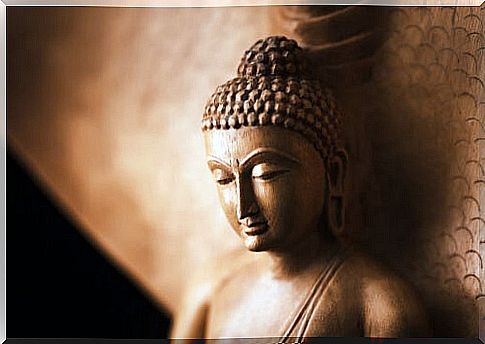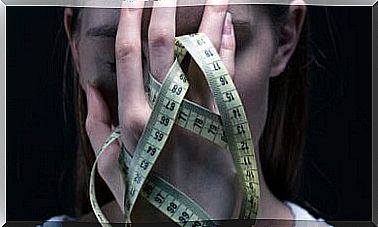The Reactive Spiral, An Interesting Concept Of Buddhism

Energy is one of the fundamental concepts of Zen Buddhism. It flows constantly and must be regulated so that it does not generate imbalances. If these occur, the so-called reactive spiral begins. A cycle that is difficult to get out of and the result of which is anguish.
In Buddhism and mindfulness, one speaks of a positive and a negative form of stress. Negative stress is due to the reactive spiral. In this there is a chain of attitudes and behaviors that lead to a significant decompensation, which affects both the body and the mind.
The important thing about identifying the reactive spiral is that, if we are able to recognize it, we are also better able to avoid it. The right thing to do is to prevent the first stage from taking place and, thus, to avoid the initiation of that chain that leads to a state of lack of harmony.

Distress and eustress
Stress is not considered good or bad within Buddhism and mindfulness . However, depending on how it is channeled, it can become one type or another. Good stress is called eustress . And bad stress, the same one that gives rise to the reactive spiral, is called distress.
The eustress derives from that certain imbalance that originates when we challenge ourselves or we propose to achieve a goal. In this sense, the novelty can produce some anguish. However, because you want it and consider it positive, this ultimately ends up translating into excitement or enthusiasm. It does not imply negative consequences.
Distress , on the other hand, is a destructive tension. It originates from accumulating worries or facing a task that produces fear or rejection. This type of stress fatigue, dulls and also affects the body. It manifests as anxiety, becoming instinctive (erratic and not very rational) in our way of acting.
A Buddhist story
An old Buddhist story tells that there was a young man who could not advance in his spiritual enlightenment. No matter how hard he tried, he couldn’t grow mentally and spiritually. So Buddha wanted to help him. To make him understand the articulation of his mistake, he used a metaphor.
He asked the young man what happened when the strings on a guitar were too tight or what happened when the strings were too loose. The young man replied that in both cases the sound was imperfect. More than music, it produced noise. Then the Buddha told him that spiritual growth followed similar rules.
When you want to move forward and there is an excess of effort in it, the mind ends up being forced. This causes too much stress to occur and instead of promoting growth, it stops it. Something similar happens in the opposite situation. When we want to advance, but we do not accompany the desire for sufficient tension, idleness ends up winning the game.

The reactive spiral
We don’t automatically plunge into the negative spiral of stress. Before falling, we follow a series of behaviors that increase our inner tension. Instead of stopping this destructive force, we unknowingly unleash it.
The components of the reactive coil are as follows:
- Neglect. The reactive spiral cycle begins with inattention. That is, a lack of focus on what happens to us internally. We go unnoticed our thoughts, emotions and physical states.
- Disconnection. It is the loss of communication with ourselves. We connect with the external, but we stop taking into account what our mind, our heart and our organism say.
- Dysregulation. If we are inattentive and disconnected, we can feel great discomfort. Many times we try to solve it by adopting extreme positions, such as emptying or filling our agenda altogether.
- Disorder. Thoughts, emotions, and actions start to get chaotic. There are no real guidelines to guide our behavior. We stop orient ourselves towards defined objectives, starting to act erratically.
- Imbalance. All of the above generates a significant imbalance. Decompensation leads to complex mood states, such as general despondency, constant anxiety, or physical illness.
In this way, it all begins with inattention, with distraction. Not being aware of the present moment makes it easy for us to lose perspective of situations and the management of our emotions. So as long as we stay vigilant, we will not fall prey to the reactive spiral.









